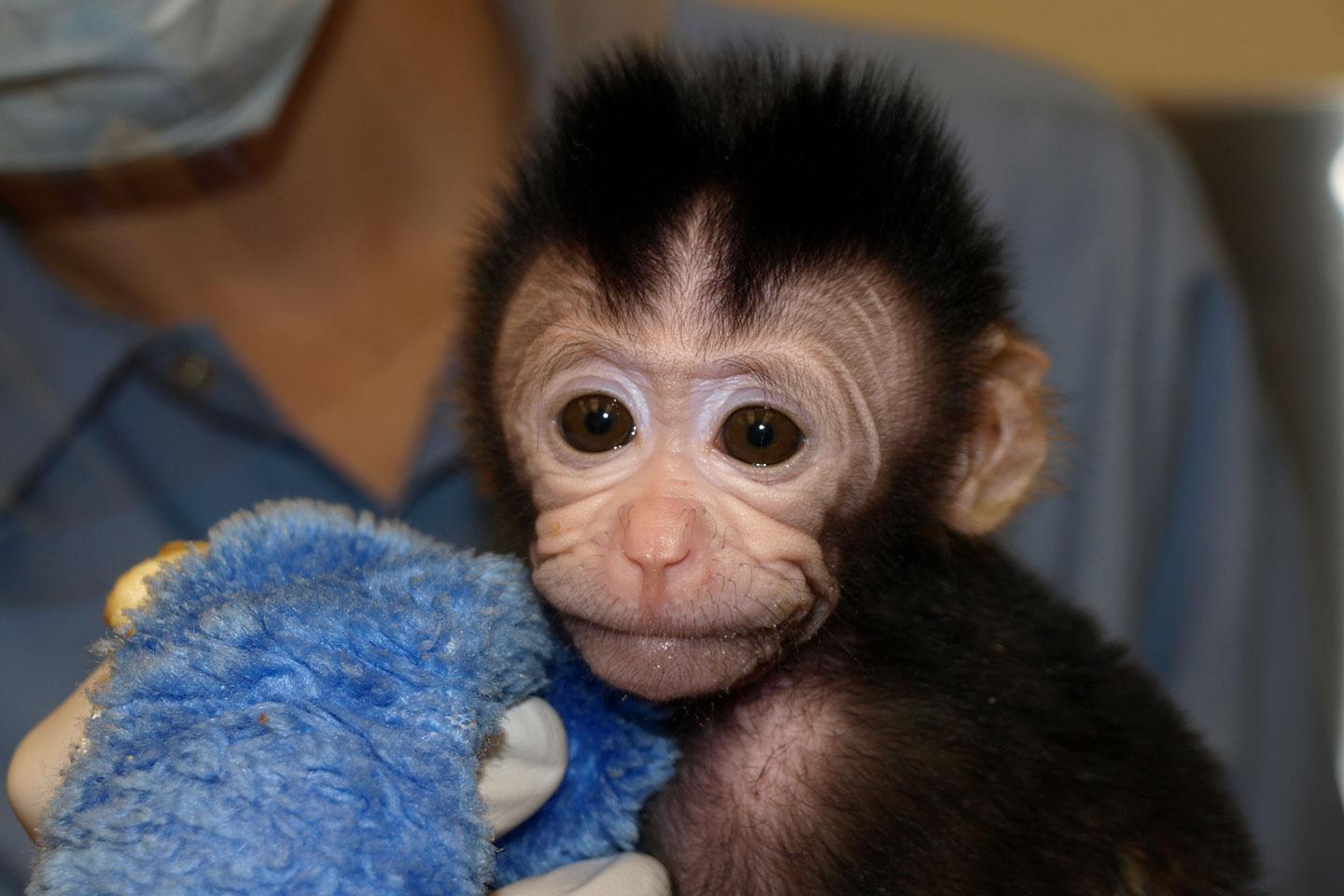Primate Medicine
Primate Medicine at the CNPRC provides high-quality centralized clinical care, research support, training, and veterinary oversight to ensure compliance with optimized standards of research conduct and animal care. The Primate Medicine team is responsible for the clinical care of over 4,000 nonhuman primates and encompasses all health needs across the lifespan, from neonatal to geriatric stages, and from preventive medicine to intensive care. Primate Medicine Services also provides research project support to investigators.

Primate Medicine veterinarians here at the Center also integrate with other CNPRC services, Core Scientists, the UC Davis Animal Care Program, the Institutional Animal Care and Use Committee (IACUC), and the Veterinary Medical Teaching Hospital to ensure optimal management practices, develop guidelines, algorithms, and standard operating procedures (SOPs), as well as provide input on future plans.
Provide High Quality Care
Our primate services program at the CNPRC provides the highest quality of medical care for our nonhuman primates. Well-trained, experienced veterinarians in medical primatology and Animal Health Technicians (AHTs) trained to the level of physician assistants, provide preventive health care, medical care, and input into the CNPRC management programs. Preventive health includes a Center for Disease Control (CDC) approved quarantine program, biannual tuberculin (TB) testing, routine physical examinations, serum banking, and a vaccination program. Medical care addresses the spectrum of diagnostics to treatment in general medicine, dentistry, emergency medicine, intensive care, project-related clinical findings, and specialized surgical procedures.
Provide Expertise and Research Support to Investigators
Our primate services team provides expertise and research support to investigators regionally and nationally. A CNPRC primate veterinarian’s role is also to provide the necessary support and expertise to ensure successful project outcomes. The veterinarians work in a close partnership with Core and Affiliate Scientists and the entire Primate Services team that is built on mutual respect and a common vision focused on improving human health-related problems, while concurrently ensuring nonhuman primates well-being. As a part of the centralized services, the veterinary staff members keep pace with technology to support research and aid in refining research protocols.
Provide Educational Growth
Here at the CNPRC, we are dedicated to providing an avenue of educational growth (both didactic and clinical) for students, residents, researchers, veterinarians, and the nonhuman primate community at large. Primate Medicine is committed to mentoring and training the next generation of veterinarians in collaboration with Core Scientists. Primate Medicine provides a spectrum of learning opportunities for veterinarians (including the Mountain Gorilla Project), residents, veterinary students from institutions worldwide, animal technicians, and new investigators in order to support and encourage their career goals.
Ensure the Highest Standards of Responsible Conduct
To ensure the highest standards of responsible conduct of research and animal care, all CNPRC veterinarians have been trained in American College of Laboratory Animal Medicine (ACLAM) approved residency programs and are ACLAM board certified, which adds significantly to the quality of animal care and research standards. The role of a LAM veterinarian is to cultivate good working relationships, be involved in management committees, and remain engaged in all aspects of the research process, from IACUC protocol development to procedural support. Primate Medicine works with the entire CNPRC staff and faculty that have specialized expertise in infectious diseases, genetics, behavior, reproduction, respiratory illnesses, and pathology in order to provide optimal colony management and psychological well-being.
